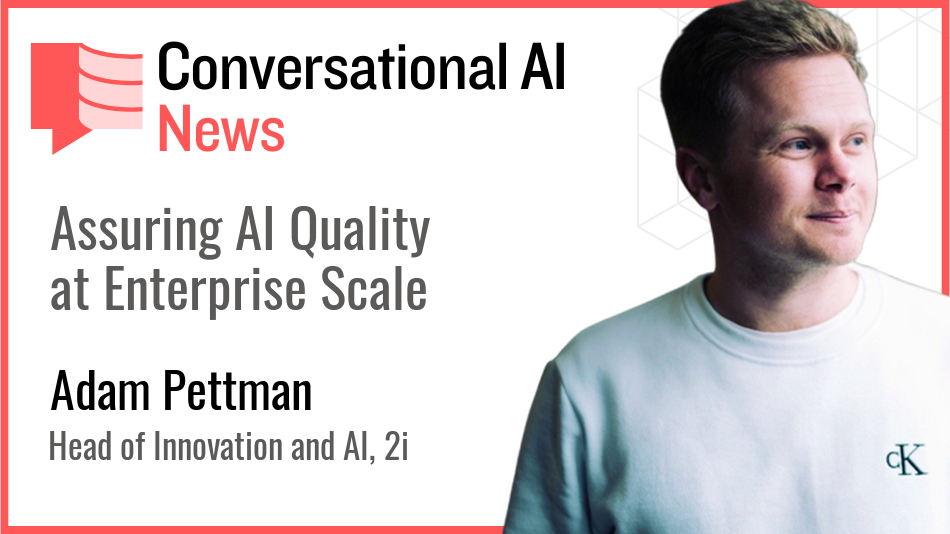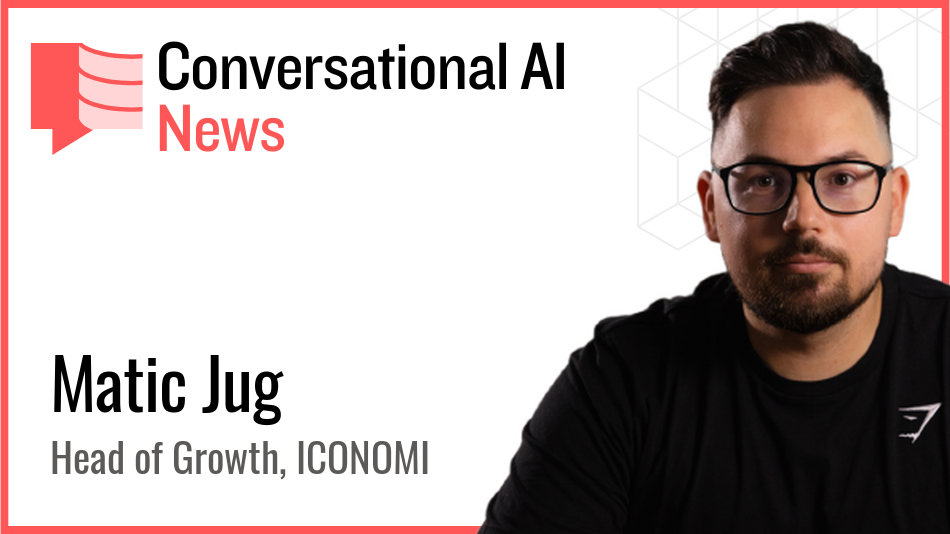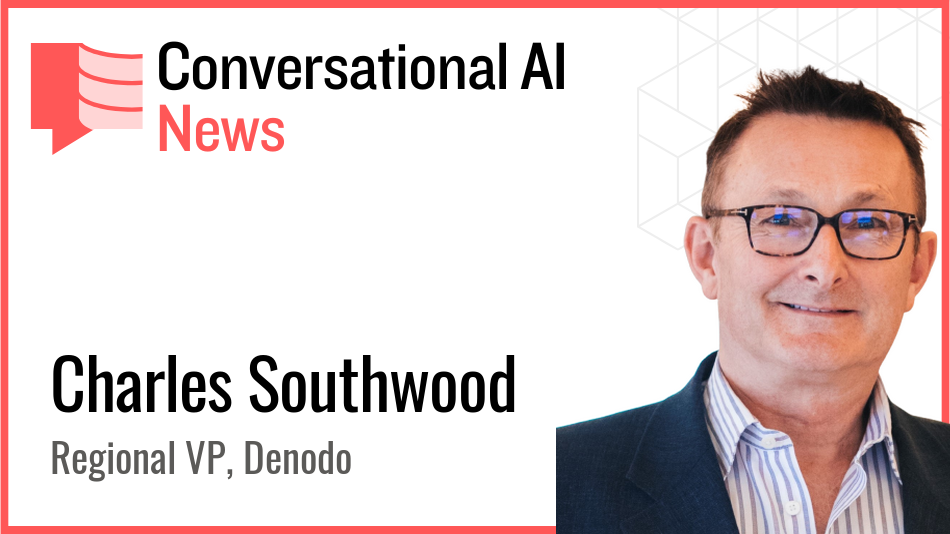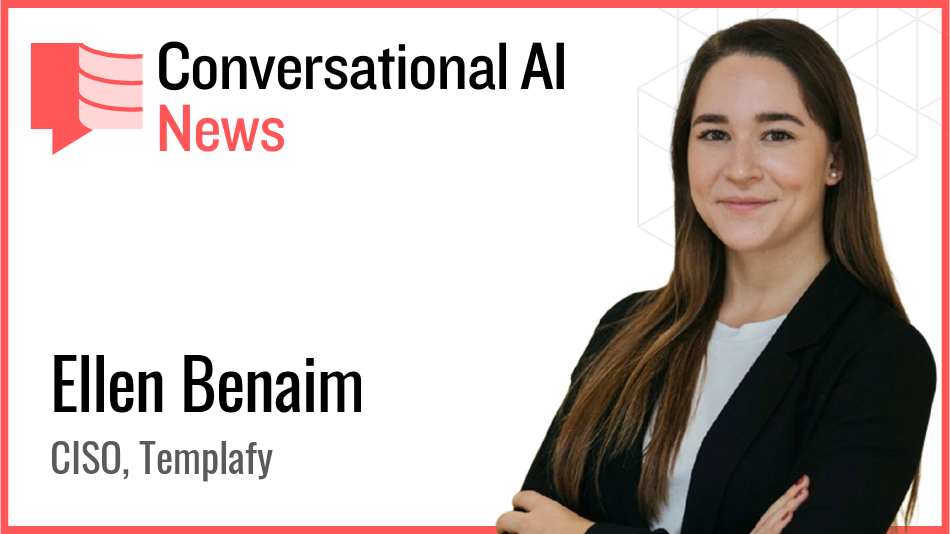Assuring AI Quality at Enterprise Scale: Adam Pettman, Head of Innovation and AI, 2i Testing

Today we're meeting Adam Pettman, Head of Innovation and AI at 2i Testing . They specialise in quality assurance and software testing consultancy, de-risking software delivery projects and bringing certainty of execution to large digital programmes.
Over to you Adam - my questions are in bold:
Who are you, and what's your background?
I'm Adam Pettman – Head of Innovation and AI at 2i and I've been with the business since 2020. I've been instrumental in helping the business transform from a manual testing business into one that's automation-first. I've always had a curious mindset and I love to solve complex problems. I was lucky enough to get my first computer when I was five and that early start gave me a real feel for how computers work. I went on to study Information Systems at university and from there, I built a career focused on bridging the gap between deep technical issues and what businesses actually need. I've always enjoyed being that translator, making tech make sense and then delivering the right solution.
One of the most inspiring moments in my learning journey came from a university lecturer called Daune West. She introduced me to something called 'rich pictures' – sketching out everything that matters in a system, encouraging me to zoom out until I could see the real problem, not the perceived problem, sketch the components showing how they interact and then asking: "Now, how would you fix it?" It was a lightbulb moment and to this day, I still use that approach in both work and life.
What is your job title, and what are your general responsibilities?
I'm currently the Head of Innovation and AI which means I get to spend my days solving brand new problems—something I genuinely enjoy. That could be anything from helping clients start their AI journey to leading our team to explore and build innovative AI use cases, especially in the world of quality and testing. No two days are ever the same and that's part of what makes it so exciting. I'm privileged to have a team that shares my hunger for learning. When I have a gap in my understanding, they are right there to keep me informed, from concept right down to the hardware.
Can you give us an overview of how you're using AI today?
At 2i, we're using AI to turbocharge our innovation cycle. It's genuinely transformed the way we work. By leveraging agentic AI to generate code at unprecedented speeds, we've accelerated our development cycles and successfully launched three powerful AI-driven solutions — each one already delivering significant impact in the market:
1. AssureAI
This is our consulting solution built around four essential pillars: accuracy, performance, robustness and explainability. It's designed to help organisations implement AI in a way that's not just fast, but responsible and delivers quality. It's how we ensure AI initiatives meet real-world demands and maintain trust from day one.
2. Synthetic Data
This isn't just test data, but a high-fidelity representation of your production environment. We're generating fully synthetic citizens, users and customers—complete with personas, images, videos, even fingerprints and DNA if needed. This means teams can start testing earlier, faster and with far more flexibility, all without compromising on privacy or compliance.
3. AssureERP
This is our intelligent approach to user acceptance testing (UAT), particularly for Oracle Fusion. We start by capturing your actual business processes and then automatically convert those into comprehensive UAT test cases. The result? A 50% reduction in testing time, an 80% reduction in business workload and a dramatic improvement in both quality and coverage. It's all about ensuring the system works for your users exactly how they need it to.
Overall, the market response has been incredibly encouraging. Clients appreciate the speed at which we're moving, but even more than that, they trust our commitment to maintaining quality and rigour throughout. For us, it's not just about using AI, but about using AI right.
Tell us about your investment in AI? What's your approach?
We decided to invest in AI early on because we saw that AI could transform our company in the same way our shift to automation did. But we didn't just jump in; we took a focused, strategic approach. We began by carefully identifying where AI could genuinely bring value to our organisation and that insight shaped the design of our initial product offerings.
Our product analysis helped guide our route to market. For example, we partnered with a leading AI data company to power our synthetic data capabilities. On the consultancy side, our offering is grounded in best practice and continuously aligned with the UK's QA for AI policy, so it evolves continuously.
We've also integrated process-capturing tools to enhance and accelerate the AssureERP solution we developed. And, in areas where we found existing market tools didn't meet our standards, we built our own —thanks to our outstanding team of senior AI engineers— or sourced experts who could help us. Their creativity and skillsets have driven much of our progress and I'm incredibly proud of what they've achieved in just the past 18 months.
Beyond product development, we've made significant investments in innovation more broadly. That includes strategic acquisitions such as bringing nFocus into the fold, to strengthen our testing and quality engineering capabilities further.
What prompted you to explore AI solutions? What specific problems were you trying to solve?
We saw early on that AI would reshape the future of testing in two fundamental ways: first, by using AI to accelerate and improve the testing process itself; and second, by testing AI systems to ensure they remain reliable and trustworthy. Recognising this dual challenge and opportunity prompted us to act quickly and get ahead of the curve. Today, we're proud of how far we've come and where we stand compared to others in our field.
One of the key shifts we identified is that AI will be responsible for generating a significant portion of software code in the future. That naturally means the test code will be impacted similarly. We believe that code should carry the same quality, rigour and standards as the systems it tests.
That's where we saw the opportunity: to ensure that testing in the AI era is held to the highest possible standards. We have ensured our testing solutions, especially those built around and for AI, to bear the 2i stamp of quality. That mission is what drives our investment and innovation in this space today.
Who are the primary users of your AI systems, and what's your measurement of success? Have you encountered any unexpected use cases or benefits?
Our AI systems are used by organisations across various sectors, with a strong focus on financial services and the public sector. As a quality assurance company at our core, we remain committed to our founding principle: quality first. While AI delivers incredible speed and efficiency, our goal is to ensure that this never comes at the expense of quality.
That's why our key success metrics revolve around two things: the quality that AI can help bring to our clients' systems and the quality of the AI outputs we produce ourselves. We want every outcome—no matter how fast it's delivered—to meet the same high standards our clients expect from 2i.
What's been especially exciting is how AI has unlocked solutions to problems we simply couldn't tackle before. One unexpected but fascinating example is our work generating synthetic DNA as test data. It's the kind of complex challenge that previously would have been out of reach due to time and resource constraints. But, with AI and our QA expertise combined, we were able to build a meaningful solution and deliver it within a timeframe that made it viable.
"Working with AI is less about expecting binary outputs—like a simple yes or no—and more about learning to work within a spectrum of responses: good, very good, not quite right, but rarely perfect."
What has been your biggest learning or pivot moment in your AI journey?
One of the biggest lessons I've learned is that AI doesn't always provide definitive, repeatable answers - at least not in the way traditional systems do. For example, if you ask an AI tool the same question multiple times – such as what the weather was in Glasgow on a specific date, you might get subtly different answers each time. Handling this variability requires a shift in mindset.
It's taught me that working with AI is less about expecting binary outputs – like a simple yes or no – and more about learning to work within a spectrum of responses: good, very good, not quite right, but rarely perfect. That shift in mindset has been a critical pivot for our team too. We've had to adapt our expectations, refine our validation processes and get comfortable with a new kind of precision - one that balances speed, usefulness and a degree of uncertainty.
How do you address ethical considerations and responsible AI use in your organisation?
At 2i, we take a thoughtful and pragmatic approach to how we use emerging technologies. As with everything we do, quality, reliability and trust are central. We focus on building solutions that are transparent, consistent and aligned with best practices, particularly those relevant within our UK context.
We ensure strong oversight throughout our development processes, with clear standards and accountability in place. Our team is encouraged to think critically and act responsibly, always keeping long-term outcomes and client trust in mind.
Within our AI and innovation team, we deliberately push the envelope – exploring what responsible AI should look like in practice as technology evolves. We treat emerging ethical challenges not as blockers but as design constraints, asking bold questions about fairness, robustness and societal impact. This means prototyping with privacy-preserving techniques, testing for bias early and experimenting with model-agnostic explainability tools. Our aim is to shape not just compliant AI, but forward-thinking, socially-aware systems that set the bar for what responsible innovation looks like.
What skills or capabilities are you currently building in your team to prepare for the next phase of AI development?
One of the most important capabilities we're focusing on within the team is a mindset of critical thinking which means encouraging everyone, including new joiners, to question everything, not just the outputs of AI systems. As AI continues to evolve and generate increasingly sophisticated and wide-reaching ideas, we've realised that our approach to problem-solving and knowledge-building needs to grow with it.
In the past, having an informed opinion on a topic might have meant reading a few articles and listening to some podcasts. Today, we can delegate that first phase of information gathering to AI. We provide a trusted set of sources and in return, AI gives us a concise summary and bullet points. It even poses follow-up questions to challenge our thinking. That interaction helps us develop more considered opinions faster and in areas we might not have previously had time to explore deeply.
So, we're not just building technical skills—we're equipping the team with new ways to engage with information, apply curiosity and use AI as a thought partner. I've focused on building a team ready to handle the next wave of AI development.
If you had a magic wand, what one thing would you change about current AI technology, regulation or adoption patterns?
If I had a magic wand, I'd love to see regulators empower the private sector to move as confidently and responsibly with AI as the UK public sector is starting to. It's been brilliant to see government bodies stepping up with real momentum and it would be fantastic to see that same kind of support and guidance extended to businesses so that we're all moving forward together.
I'd love to see best practices around sustainability baked in from the start, guidelines that help us make smart, responsible decisions as we build. Google provides a great example: They used AI to cut energy use in their data centres by 30% in 2020. That's the thinking we need more of, AI not just as a tool for progress but as a force for good, for people and the planet.
What is your advice for other senior leaders evaluating their approach to using and implementing AI? What's one thing you wish you had known before starting your AI journey?
My advice to other senior leaders thinking about AI is simple: treat it like the once-in-a-generation shift it truly is. Part of embracing that is being comfortable admitting, "I don't understand all of this." Because honestly, no one does. It's complex, fast-moving and full of nuance—but that's okay.
What's important is surrounding yourself with people who do understand it, who live and breathe the detail and can guide you through the noise. That's what I've done with my team and their deep focus on how AI impacts quality has been invaluable. Not every senior leader has time to dive deep, but you don't need to. You just need to make space for those who can.
What's the one thing I wish I'd known at the start of this journey? Just how cost-effective it is to explore bold ideas with AI. Concepts that might've been written off as "too expensive" or "too risky"—a £250K investment, for example—can now often be explored for a fraction of that, sometimes as little as £20K. That changes the game. AI gives you room to experiment and test those moonshot ideas you might've dismissed before. At 2i, we actively encourage that mindset—but always with one constant: quality. No matter how exciting the tech is, quality must remain at the heart of everything you build.
What AI tools or platforms do you personally use beyond your professional use cases?
Some of the tools and platforms I use regularly are:
- Roocode
- Newsletters such as Alphasignal.ai
- ChatGPT
- Google Gemini
- Claude
What's the most impressive new AI product or service you've seen recently?
Conversational AI continues to blow me away. Every time I engage with it, I find something new to admire. What impresses me most is how it delivers on two completely different levels.
First, there's the technical side. The progress in reducing latency to the point where it feels like you're talking to another human being is just incredible. That level of fluidity and responsiveness is a huge achievement, making the whole experience feel natural and engaging.
Think about what this could mean for society. You can shape these tools to take on different personas, maybe one that pushes you to think more critically or one that encourages you to see a problem from a completely different angle. And when that happens, your own thinking starts to shift. You end up exploring ideas you might never have reached on your own.
What makes it so powerful is how it can change thinking and inspire innovation, not just the tech, but its impact on creativity and decision-making.
Finally, let's talk predictions. What trends do you think are going to define the next 12-18 months in the AI technology sector, particularly for your industry?
Over the next 18 months, I think we're going to see some really bold moves, especially in the financial services sector. I wouldn't be surprised if a challenger brand comes along and rewrites its entire codebase using AI. Not just 30% or even 50%, like we've heard from the tech giants, but something closer to 90%. That level of efficiency could completely change the game and allow new players to take on retail banks or the big insurers in ways we haven't seen before.
At the same time, I think the UK public sector will continue leading the way in AI adoption, especially when using it for real-world efficiencies. They've already made great progress and I can see that accelerating, delivering more value for taxpayers and showing how AI can make meaningful, measurable improvements in public services.
From a quality perspective, this shift is going to challenge all of us in the industry to keep up. If code is being produced at that kind of speed and scale, then making sure it's robust, secure and fit for purpose becomes even more critical. So, for us at 2i, it's about staying ahead of that curve, making sure we're ready to test and assure AI-driven systems at the same pace they're being built.
Thank you very much, Adam!
Read more about Adam on LinkedIn and find out more about 2i at 2itesting.com.
You can read more about 2i Testing on the Conversational AI Marketplace.














